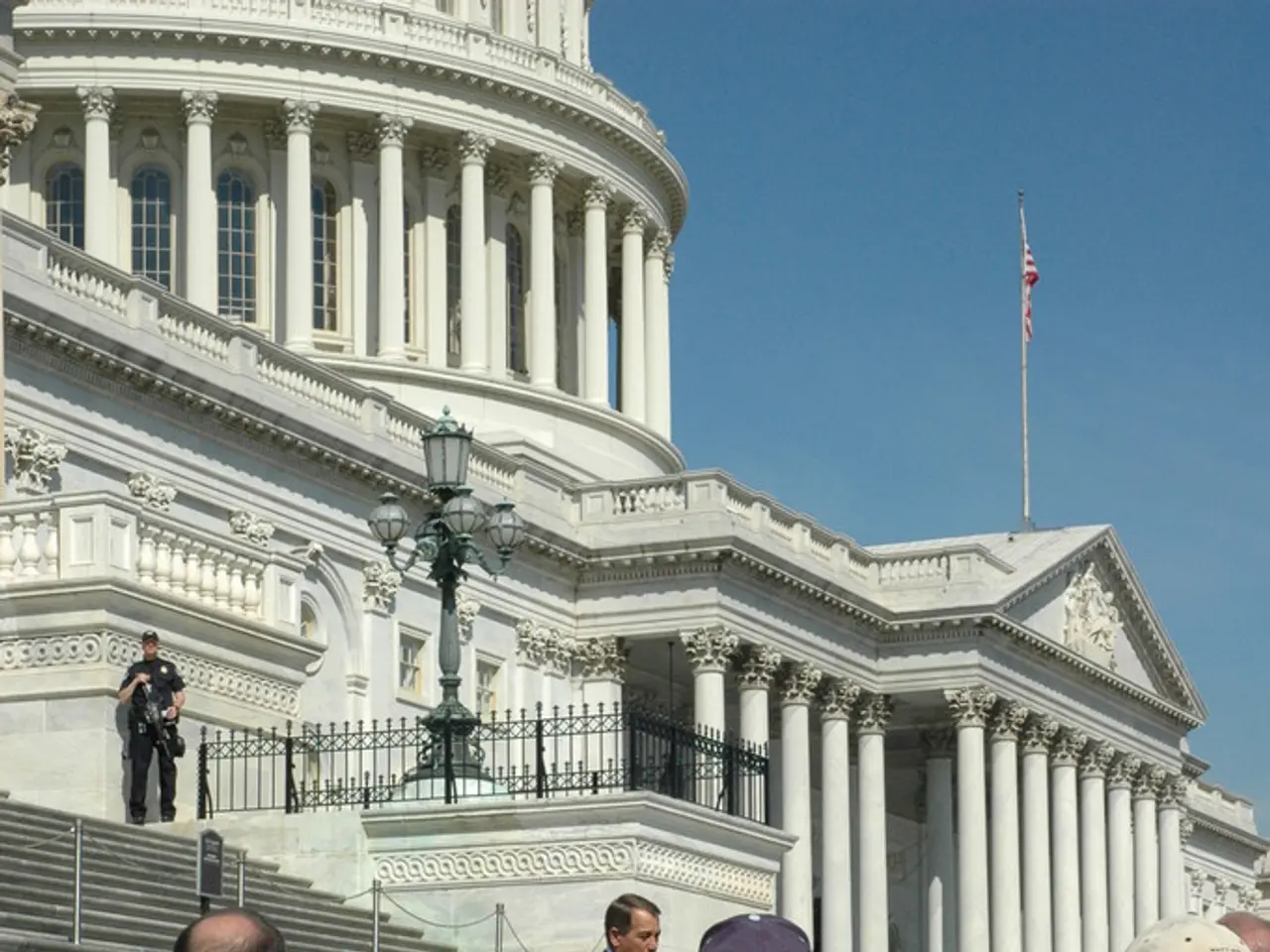Will Journalists Maintain Shields to Hold Government in Check?
In a significant move, President Donald Trump signed a series of executive orders on January 26, 2025, aiming to address alleged past misconduct by federal agencies in the use of law enforcement powers. The orders seek to ensure accountability for the alleged weaponization of federal law enforcement and the Intelligence Community against American citizens.
The executive orders mark a critical shift in government power, corporate surveillance, and civil liberties. One of the key initiatives involves the consolidation of personal data into a federal mega-database, combining sensitive information from agencies like the IRS, Social Security Administration, Department of Health and Human Services, and potentially more. This "one database to rule them all" enables unprecedented government surveillance capabilities, raising concerns about privacy rights and the potential for authoritarian overreach.
The Trump administration's collaboration with private corporations, notably Palantir Technologies, highlights a growing intertwining of government and corporate surveillance apparatus. Palantir's data analytics platforms are being used to aggregate and analyze government-held personal data, raising critical concerns about privacy, data misuse, and accountability. This reflects a form of surveillance capitalism where corporate entities, driven by technology and data expertise, become integral to government surveillance and enforcement mechanisms.
The consolidation of personal data and the blurring of lines between government and private companies pose serious threats to civil liberties. The master database combined with advanced data-sharing policies risks infringing on privacy rights, potentially leading to the erosion of privacy rights and core civil liberties. The expansion of surveillance powers without clear privacy protections intensifies these concerns.
Critics and political analysts have noted that such data-centralization and surveillance expansion echo tactics employed in authoritarian regimes, raising alarms about potential misuse against political opponents and marginalized groups. Trump's rhetoric and behavior, including threats against opponents, have been linked to fascistic tendencies, with the enhanced surveillance infrastructure potentially enabling repression or unfair targeting.
To restore public trust in government institutions and protect citizens' rights from potential overreach, the orders aim to correct past abuses. The Attorney General is tasked with reviewing the activities of federal agencies over the past four years to identify instances where conduct was contrary to the principles outlined in these orders. A report with recommendations for remedial actions will be submitted to the President after the review. Agencies are instructed to adhere strictly to document retention policies, with any noncompliance referred to the Attorney General for further action.
The Director of National Intelligence is directed to assess the conduct of the Intelligence Community during the same period, looking for similar misconduct and ensuring that intelligence operations align with lawful objectives. The orders aim to ensure that government agencies operate within the bounds of the law and respect the rights and freedoms of American citizens.
In conclusion, Trump's 2025 executive orders on data sharing and government efficiency significantly extend government surveillance powers through a centralized data infrastructure enabled by corporate technology firms. This raises profound concerns regarding the expansion of surveillance capitalism, weakened civil liberties, and the risk of authoritarian misuse of surveillance tools in American governance. The orders, however, also aim to address past abuses and restore trust in government institutions, striking a balance between security and civil liberties.
**Summary Table:**
| Aspect | Description | Implications | |------------------------------|--------------------------------------------------------------|----------------------------------------------------------| | Government Power | Consolidation of personal data into a federal mega-database | Enhances surveillance capabilities; risks authoritarian practices | | Corporate Surveillance Role | Use of companies like Palantir for data aggregation | Corporate-government nexus increases surveillance capitalism risks | | Civil Liberties | Privacy concerns amid widespread data sharing | Potential erosion of privacy rights and core civil liberties | | Political Implications | Increased capacity for political surveillance and control | Possible use against political opponents, echoing authoritarian patterns |
The executive orders, aiming to address past abuses and restore public trust, also delve into the realm of policy-and-legislation, as they outline new data-sharing policies and obligations for federal agencies and corporate collaborators like Palantir Technologies. These changes in data-handling practices raise concerns about the politics of surveillance, as they could inadvertently enable authoritarian overreach and potential misuse against political opponents or marginalized groups.
In the context of general-news, the 2025 executive orders signed by President Trump spark heated discussions among political analysts and civil rights activists, with concerns over the expansion of surveillance capabilities, one-sided data sharing policies, and the potential erosion of civil liberties as the main points of contention. The debate highlights the evolving nature of politics and the importance of securing privacy rights and civil liberties in the face of increased government surveillance and corporate-government collaborations.







